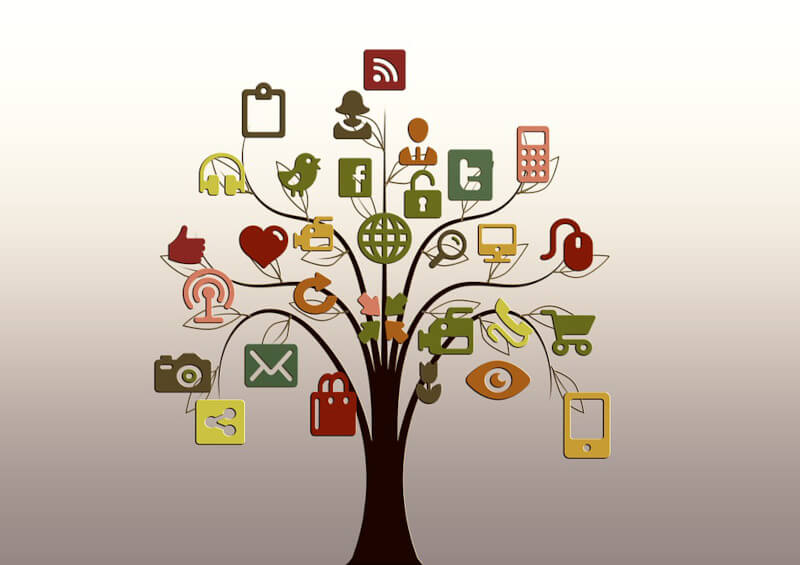
To reach a wider audience, multi-channel marketing integrates different forms of advertising and distribution into a unified whole. This method takes advantage of the specific qualities of various channels of communication to effectively spread the word about the worth of a product or service. Email, postal mail, online presence, social media, billboards, and shops are all examples of possible distribution points. To meet the needs of a wide range of customers, businesses may sell their wares through a combination of online and offline channels, or “distribution channels.”
Multi-Channel Advertising: Its Many Perks
Multi-channel marketing has been celebrated by marketers for decades, with one study asserting that clients who use multiple channels spend two to five times as much as customers who use only one. Let’s give an example of why multi-channel marketing approaches are so well-known.
Widening Impact
Marketers can reach a larger portion of their target audience by spreading their messages across multiple platforms. Many customers only use one or two channels of communication, so broadening the scope of your campaigns to include additional channels can help you reach customers with unrealised purchasing power.
Heightened Interest
The more channels a business has, the more opportunities there are to interact with customers. This not only broadens how customers can interact with brands but also facilitates fresh lines of communication between businesses and their clientele.
Get in Front of Customers Through Their Preferred Medium
Every day, consumers engage with a wide variety of media; instead of sitting back and hoping that customers will stumble upon their brand, businesses should instead learn which channels their target audience frequents and tailor their marketing strategies accordingly. Customers with only a passing interest in your offerings may prefer informational TV commercials, while those on the verge of making a purchase may benefit more from reading in-depth online reviews.
Joint Efforts Are More Powerful Than Individual Means
Marketers can improve the effectiveness of their customer-focused messages by developing a strategy that integrates campaigns from different media channels. It’s possible to combine different channels and messages to create more powerful campaigns. Here are two tried-and-true combinations:
The combination of social media and traditional media has been shown to increase brand recognition by 12% points compared to single-channel campaigns. This is due to social media which makes it easier to reach a specific audience repeatedly and effectively, thus reinforcing marketing messages.
Commercials broadcast on the radio have been shown to increase viewers’ recall of TV spots. Combine these two and you can increase brand recall from TV commercials by 35%, it has been shown. One possible explanation for this phenomenon is the low marginal cost of repeatedly exposing consumers to brief radio commercials. As a result, brands will be able to strengthen their reputations with the help of more compelling and thought-provoking TV commercials.
Multi-Channel Marketing and Its Difficulties
Multi-channel marketing has a lot going for it, but it’s not the best option for every business. Before introducing this strategy into your company, consider how you’ll deal with the following obstacles.
Managing Resources Effectively
Marketers will need to be prepared to allocate more time, resources, and money to develop strategies that are optimal for each channel as the number of channels continues to grow. In addition, many businesses have departments that operate in isolation from one another, with little opportunity for information or knowledge sharing. It may be challenging to figure out the best ways to manage your campaign without the insight of other teams, such as finance or operations, that may comprehend some elements of consumer behaviour
Correctly Attributing Marketing Results
When businesses adopt a multi-channel marketing strategy, the value of precise marketing attribution becomes immediately apparent. As the number of channels available to communicate with a customer grows, it becomes more difficult to trace back a customer’s action to a single message.
Using Analytical Marketing Techniques
Even if a marketing team is confident in its understanding of analytics, the process of developing a multi-channel advertising campaign may reveal unorthodox or inefficient approaches. 37% of marketers found it difficult to leverage customer information when generating multi-channel campaigns, and 55% found it complicated to add customer information to existing client profiles. 65% of marketers are worried about the accuracy of their data. Any team that puts in the effort to launch a multi-channel campaign only to find out there are problems is in for a nasty shock.
Based on the evidence, it seems that these problems are caused by a deficiency of expertise within the company. In a recent survey, 56% of marketers said it was somewhat difficult or very difficult to find qualified candidates for marketing analytics positions, with 18% calling it their biggest challenge of 2019. Marketers either need to take courses to learn how to do this on their own or use an advanced analytics platform that simplifies data analysis for the novice.
Holding Onto New Technology
Ten years ago, businesses were just beginning to figure out how to make the most of Facebook’s advertising potential. They felt the need to rapidly broaden their marketing campaigns to include Instagram, Twitter, LinkedIn, Snapchat, TikTok, and other platforms in just a few years. Mastering an innovative platform for social media each year is challenging, and the difficulty increases when marketers also have to keep up with other game-changing innovations like Smart TVs and location-based marketing. Marketers who want to maintain a competitive advantage must continuously investigate emerging channels and develop strategies to make the most of their messaging there.
Concentrating Messages
Your message must not only be visible to your target audience but also must strike an emotional chord with them. Because of this, multi-channel marketing places an even greater premium on the importance of sending precisely targeted messages. Take into account the customer’s demographics, psychographics, and purchase history, as well as the channels they frequently use, when crafting multi-channel messages. To accomplish this, you’ll need to take a comprehensive, individual approach to advertise.
Important Measures to Take Before Launching a Multi-Channel Ad Campaign

Multi-channel marketing strategies require more nuance than their simpler counterparts. For optimal results, marketers must select the most appropriate channels for reaching specific subsets of their target audience and then tailor the channels’ respective creative content to those users. To accomplish this, you will need to acquire a more thorough familiarity with marketing data.
Bust up the Internal Barriers
Organizational silos create barriers to sharing information and working together effectively. People tend to remain loyal to their assigned group and might not exchange information or data sources with individuals beyond the team unless prompted to do so. To overcome these obstacles, businesses must first unite around a shared purpose that employees can rally behind. Only then can they develop consistent messages that are broadcast in a unified fashion across all channels.
Use a Channel-Switching Marketing System
An effective multi-channel marketing campaign cannot be developed without a marketing quantification and improvement platform. Management features of these marketing technology tools allow for consistent campaign tracking across channels. In terms of optimization, high-level marketing analytics will be invaluable in assessing the factors that influenced a customer to make a purchase. Not only does this promote precise marketing attribution, but it also aids in the collection of user behavior insights across specific channels, which ultimately leads to an efficient, optimised multi-channel strategy.
The Importance of Knowing Your Audience
Multi-channel marketing strategies call for a more nuanced understanding of your audience than more simplistic approaches. Marketers should conduct thorough market research to collect enough information about their target audience to develop detailed buyer personas that cater to specific subsets of that audience. Each persona should include detailed information about the target audience, such as their demographics, preferred communication channels, and typical responses to advertisements.
Then, you can see if your buyer persona is accurate by conducting “test runs” of your campaign using A/B testing. If a particular message generates a lot of interest, then your existing customer profile is probably spot on. Your team should revise the persona and retest if the results from the first round of testing did not match their expectations. Although your persona may pass muster at first, it is important to remember that consumer attitudes shift frequently and you must constantly optimize your targeting.
Maintain a Uniform Tone
Maintaining uniformity in your brand’s messaging increases customer interaction, sales and retention. Because of this, marketers shouldn’t spam their clients with identical messages across all channels. Instead, they should work to create a unified brand image and tone that can be conveyed in a variety of ways depending on the medium and the target audience. Once you have established these measures and have the strategies in place, you can find outsourcing assistance to take this over, so you can focus on other key aspects of your business. Click here for more information.



